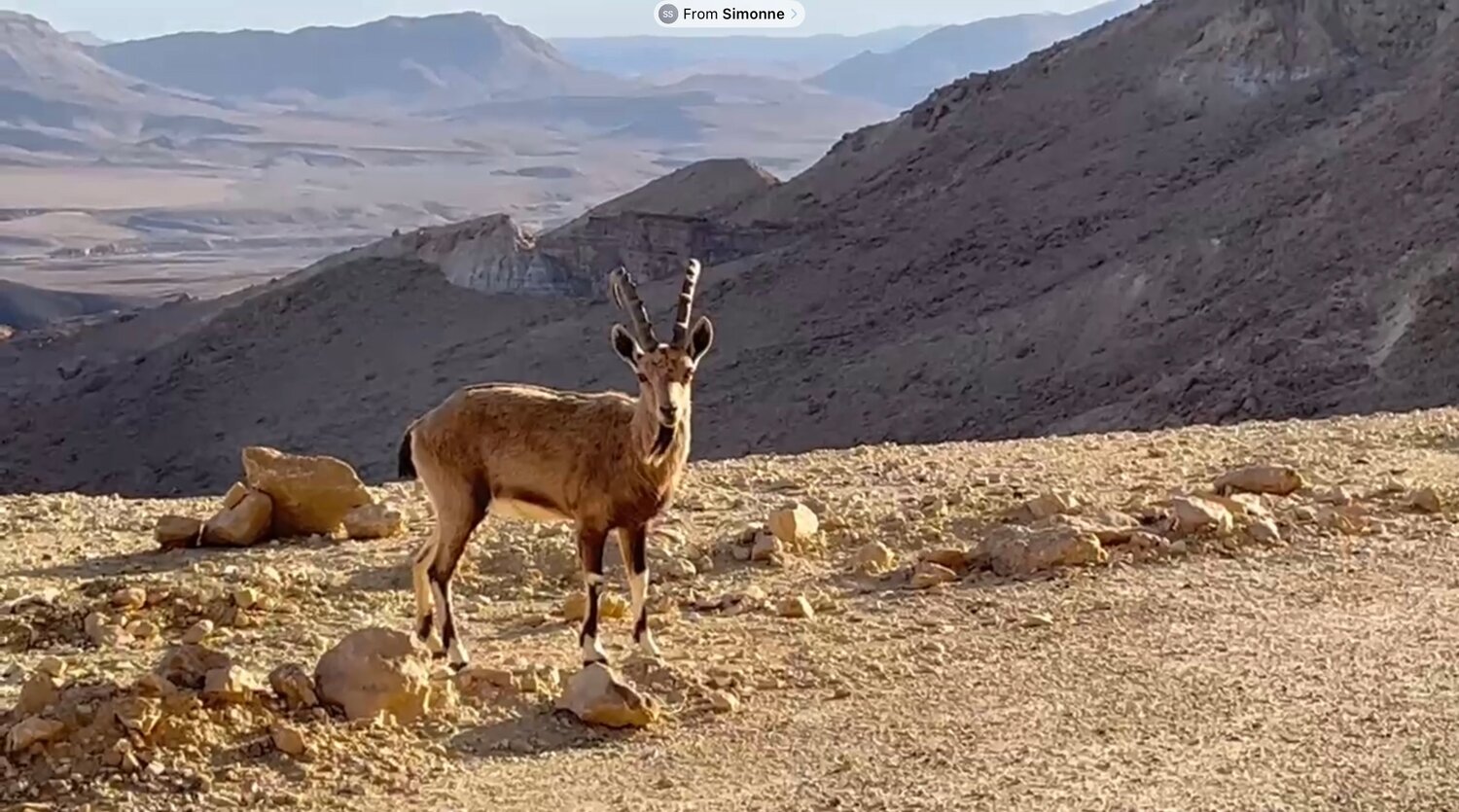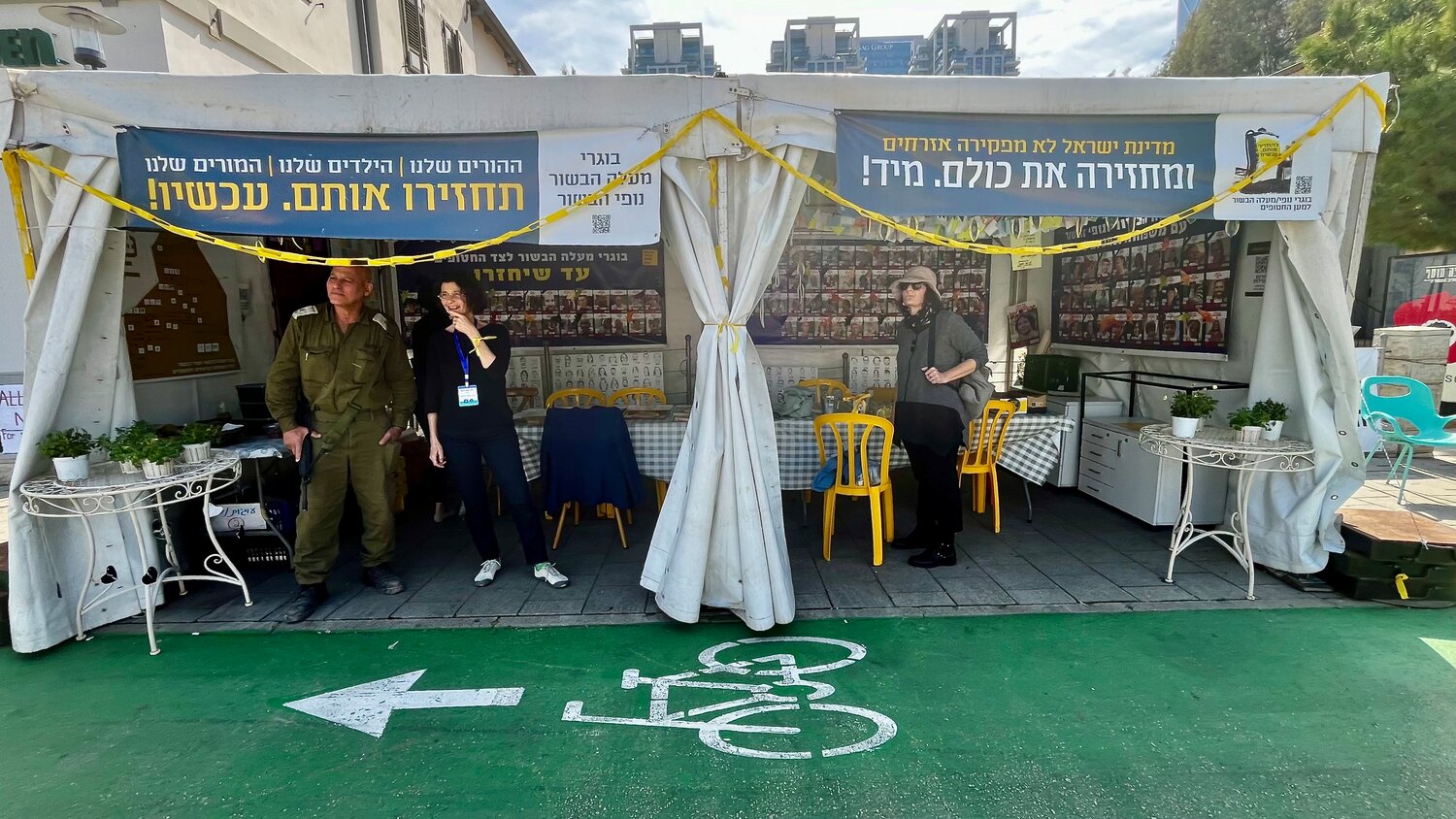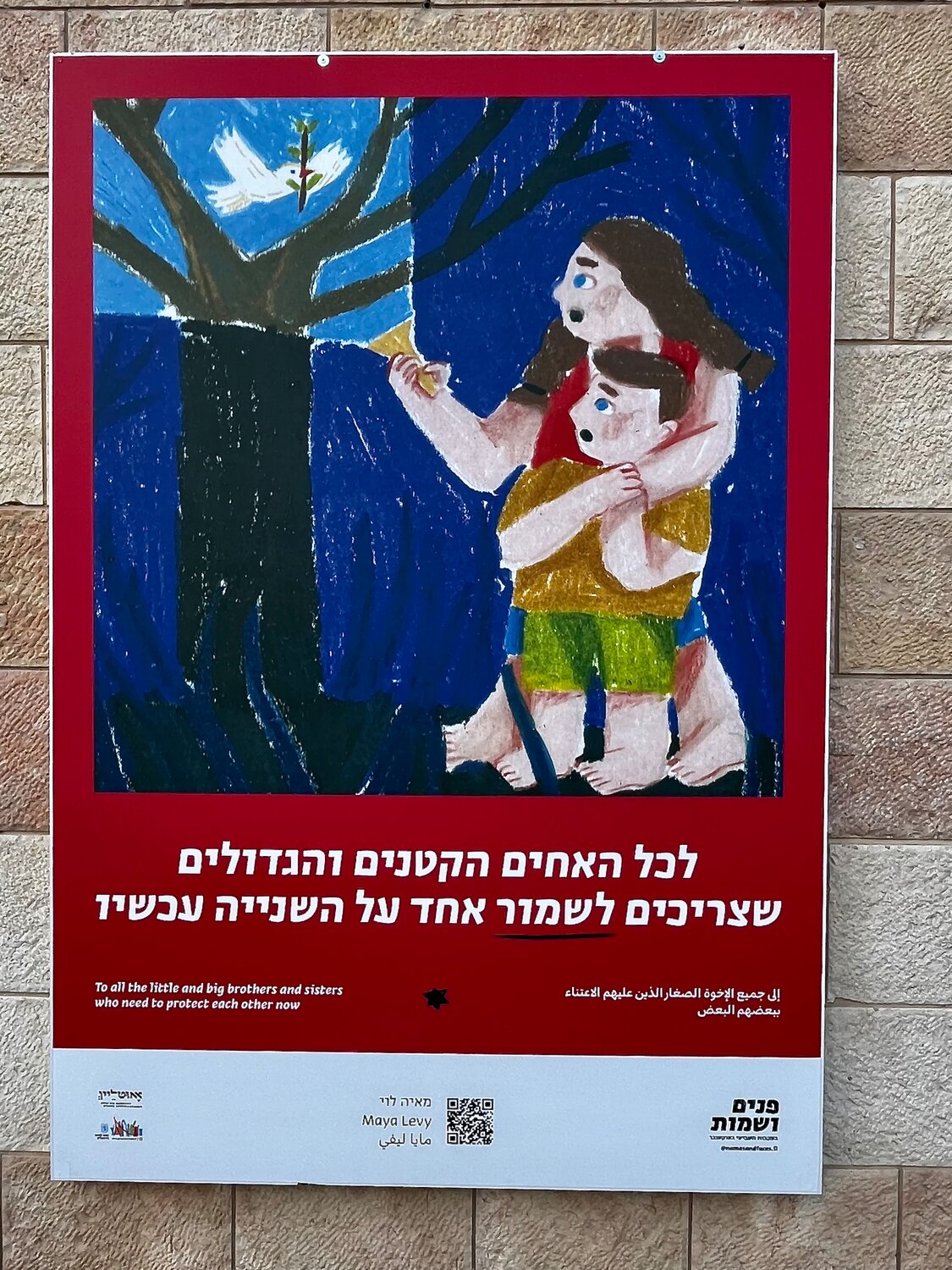In the shadow of war, a quieter, more subdued Israel
In February, I took a month-long trip to Israel. For two weeks, my friend Simonne and I walked all over Jerusalem and did some sightseeing. After she left, I spent two weeks meeting people. Throughout it all, the war was ever present, from pictures of the hostages to empty national parks and the remarks of the people I met. Many more people carried guns than on previous visits.
A slight chill did not lessen the pleasure of being in Jerusalem. Except when we were near the Kotel, the old city was quiet. There were no tourists; most of the shops that served them were closed. But at the busy Machane Yehuda Market on Friday morning, people lined up for the best donuts and coffee and to be seen.
In Israel under normal conditions, one is unlikely to be alone. Now the empty national parks tell a different story. At Zippori National Park, an ancient city north of Nazareth, most of the few visitors were Arab Israelis. A couple who gave us directions said, “We are visiting the spot where our family village had been before Israel became independent.”
Beit She’an National Park encompasses a large Roman Byzantine city. We walked on the Cardo, which had been lined with shops. The stage at the 7,000-seat ancient theater was ready. We were alone in the audience.
South of Beer Sheva, we were alone at Avdat, an ancient Nabatean, Roman and Byzantine city. Nearby Ein Avdat is a waterfall in a narrow canyon, where we enjoyed being among a crowd of students. For once, we were not alone.
As we began our descent to the floor of the Negev’s Makhtesh Ramon Crater, a Nubian ibex strutted before us. The 40-mile-long, 1,640-feet-deep crater was created by erosion. In the crater, an abandoned surface mine has been converted to a park, with the help of the Quarry Rehabilitation Fund. The formations at the bottom date to the Jurassic Era, 200 million years ago. The rocks are green, black and red.
A few people joined us at Masada, where the large cafeteria was closed. We took the cable car up, planning to walk down. Then bolts of lightning lit up the sky, and there was a risk of a flash flood. When the rain started, we huddled in buildings near the cable car. As we prepared to walk down the snake path, we were stopped at the gate. It was too slippery.
I devoted the last two weeks of my trip to getting together with people. I am very interested in the Jewish community in Dokshitsy, Belarus. My father was born near there, as were many immigrants to my hometown, Newport.
Prof. Michelle Slone, whose mother was born in Dokshitsy, is a psychologist and trauma specialist. She has treated some of the most difficult cases, including volunteers who recovered bodies after the massacre on Oct. 7.
In Tel Aviv, I walked with Lew, also a Dokshitsy descendant, who recently made aliyah. Lew was reluctant to enter a tent that was devoted to the hostages. When he heard about Hamas’ Oct. 7 attack, his first thought was, “Where was the Israeli army?” He realized that Israel had experienced a major defeat. Visiting the tent was too much to bear.
At my Beer Sheva apartment, near the Soroka Medical Center, my host asked, “Do you hear the helicopter? It means bad news. An Israeli soldier has been killed or severely wounded. We usually find out in a couple of hours.” Soroka is the closest major hospital to Gaza.
A friend I’ll call Leah, whose father was a Holocaust survivor from Dokshitsy, said the government was not prepared for Oct. 7 and volunteers stepped in. One group she was part of collected sleeping bags for soldiers. Another group arranged for volunteers, including Leah, to be transported to areas near Gaza to pick fruits and vegetables after Thai workers left the country and survivors were evacuated. She was very concerned about the number of civilian casualties in Gaza.
In Beer Sheva, I accompanied Leah to a Saturday night demonstration that was mostly about the hostages. The ongoing weekly demonstrations had started over a year ago as a protest against the Israeli government.
During the demonstration, I noticed that a Facebook friend, Galit, was online. Her grandmother was born in Dokshitsy. Soon I was in touch with her father, Shraga Krein. When I met Shraga a few days later, he apologized for meeting in a hotel. His new house needed a plumbing repair.
Shraga’s mother, aunt and uncle were partisans during World War II. A partisan group refused to accept his mother, but she managed to get into another group because her brother was already in it. For her brother to join the group, he had to undertake and survive a difficult mission. Unfortunately, he was killed during another difficult mission. Shraga told me he felt he had to step away from the Holocaust to live a full life.
In Modin, I rented a room from a physicist who asked, “Did you notice the shoddy construction in Israel?” It’s hard to miss. In Jerusalem, new sidewalks are crumbling. I chuckled when he mentioned new apartments needing repairs.
“When you ask about the quality of the work,” he said, “the answer is, ‘Trust me.’ ”
In Haifa, I met Zeev Frenkel, an immigrant from Russia related to Newport’s Nemtzow family. The Nemtzows also came from the Dokshitsy area. We discussed genealogy by DNA. [In Israel you cannot purchase the DNA test kits for genealogy purposes.] He said it might uncover inconvenient facts such as a birth out of wedlock. Such a child would have difficulty getting a religious marriage.
The Druze are an offshoot of Islam. This small group marries among themselves, leading to a higher chance of a genetic disease. Couples are encouraged to take a DNA test to make sure that they aren’t too closely related.
Most ultra-Orthodox groups do not actively recruit from outside the group. People marry within the group. Couples are required to have a DNA profile done before they become engaged to make sure that they aren’t closely related. This issue does not apply to Chabad Lubovitch, which actively seeks to bring in new people
A few days after our meeting, Shraga Krein called and said, “Aaron, for me it was a very emotional meeting, but now I have to draw the curtain. When you come next time, let’s meet at my home.”
AARON GINSBURG lives in Stoughton, Massachusetts, and blogs at jewishnewport.blogspot.com.













